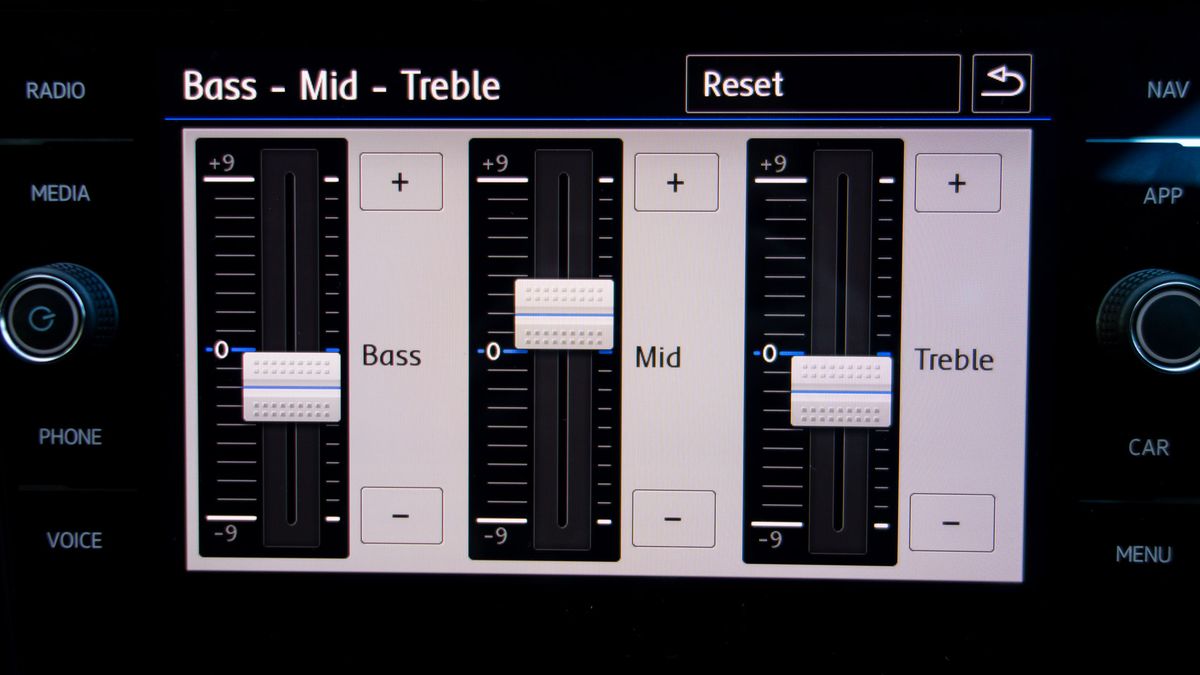Home>Production & Technology>Musician>How To Set Goals As A Musician


Musician
How To Set Goals As A Musician
Published: January 27, 2024
Learn how to set effective goals as a musician and take your music career to the next level. Discover the key strategies and techniques for success in the music industry.
(Many of the links in this article redirect to a specific reviewed product. Your purchase of these products through affiliate links helps to generate commission for AudioLover.com, at no extra cost. Learn more)
Table of Contents
- Introduction
- Why Goal Setting is Important for Musicians
- Step 1: Reflect on Your Musical Journey
- Step 2: Define Your Long-Term Goals
- Step 3: Break Down Your Goals into Actionable Steps
- Step 4: Prioritize and Set Deadlines for Your Goals
- Step 5: Create a Plan for Accountability and Tracking Progress
- Step 6: Adapt and Adjust Your Goals as Needed
- Conclusion
Introduction
As a musician, setting goals is a crucial part of your journey towards success and personal growth. Whether you are just starting out or have been playing for years, having clear objectives can help you stay motivated, focused, and ultimately achieve your dreams.
Goal setting provides a roadmap for your musical career, helping you establish a sense of direction and purpose. It allows you to define what you want to achieve, both short-term and long-term, and provides a framework for tracking your progress along the way.
In this article, we will explore the importance of goal setting for musicians and provide a step-by-step guide on how to set effective and achievable goals. Whether you aspire to perform on a big stage, release an album, or simply improve your skills, the strategies shared here will help you turn your musical aspirations into reality.
So, put on your headphones, grab your instrument of choice, and let’s dive into the world of goal setting for musicians!
Why Goal Setting is Important for Musicians
Goal setting is not just a practical exercise; it is a mindset that can profoundly impact your musical journey. Here are a few reasons why goal setting is important for musicians:
- Clarity and Focus: Setting goals gives you clarity and a sense of purpose in your musical endeavors. It helps you define what you truly want to achieve and provides a clear path to follow. With clear objectives in mind, you can avoid getting overwhelmed or lost in the sea of musical possibilities.
- Self-Motivation: Goals serve as a powerful driving force for your motivation. When you have a specific target to work towards, it becomes easier to stay focused and committed to your practice. Achieving milestones along the way boosts your confidence and fuels your passion, propelling you to keep pushing forward.
- Measurable Progress: Setting goals allows you to track your progress effectively. With defined objectives, you can break them down into smaller, measurable steps. This not only helps you see how far you have come, but it also enables you to identify areas where you may need to adjust your approach or invest more effort.
- Time Management: When you set goals, you have a timeline to work with. This helps you prioritize your musical activities and manage your time efficiently. By setting deadlines for each goal, you can allocate your time and resources accordingly, making sure you stay on track and make steady progress toward your musical aspirations.
- Maintaining Momentum: As a musician, it’s common to face challenges or hit plateaus along the way. Setting goals helps you maintain momentum and overcome obstacles. They serve as reminders of your purpose and provide the motivation to push through difficult times, ensuring you stay committed and dedicated to your craft.
Overall, goal setting is an essential tool for every musician, no matter what stage of your career you are in. It brings clarity, motivation, progress tracking, time management, and helps you maintain momentum. So, harness the power of goal setting and embark on a fulfilling and successful musical journey!
Step 1: Reflect on Your Musical Journey
Before you start setting goals, it’s important to take some time to reflect on your musical journey so far. Reflecting allows you to gain a deeper understanding of your strengths, weaknesses, passions, and areas for improvement. Here are a few steps to help you in this process:
- Review Your Achievements: Take a moment to review your musical achievements and milestones. This could include performances, recordings, collaborations, or any other notable experiences. Celebrate your successes and acknowledge the progress you have made. Reflecting on your accomplishments can boost your confidence and remind you of what you are capable of.
- Identify Your Strengths: Reflect on your musical strengths and areas where you excel. Is it your technique, songwriting, improvisation, or stage presence? Recognizing your strengths will give you a sense of direction and help you leverage them in your goal setting process.
- Recognize Your Weaknesses: Be honest with yourself and identify areas where you can improve. It could be technical skills, music theory knowledge, or performance anxiety. Identifying your weaknesses will allow you to prioritize them in your goals and develop strategies to overcome them.
- Explore Your Passions: Dive deep into your musical passions. What genres, styles, or instruments inspire you the most? Understanding what truly excites you will help you align your goals with your passions, making the journey more enjoyable and fulfilling.
- Set Personal Objectives: Reflect on your personal aspirations as a musician. What do you want to achieve on a personal level? Is it to express yourself through music, connect with others, or make a living from your craft? Understanding your personal objectives will shape the overall direction of your music goals.
Reflection is a powerful tool that sets the stage for meaningful goal setting. By taking the time to reflect on your musical journey, you gain clarity, insight, and a solid foundation to move forward. So, grab a journal or find a quiet space, and let your thoughts and experiences guide you in this introspective process.
Step 2: Define Your Long-Term Goals
Once you have reflected on your musical journey, it’s time to define your long-term goals. Long-term goals are the big-picture objectives that you want to achieve over an extended period. These goals serve as your ultimate destination and guide your overall musical direction. Here are some steps to help you in this process:
- Visualize Your Future: Take a moment to envision your ideal musical future. What does success look like to you? Would it involve performing in prestigious venues, recording albums, or teaching others? Allow yourself to dream big and imagine the possibilities.
- Be Specific: When setting long-term goals, be as specific as possible. Instead of saying, “I want to be a successful musician,” specify what success means to you. For example, it could be performing at renowned music festivals or having a dedicated fan base.
- Consider Timeframes: Determine a timeframe for achieving your long-term goals. This could be one year, five years, or even ten years. Understanding the timeline will help you set realistic expectations and break down your goals into manageable steps.
- Balance Your Objectives: Think about the different aspects of your musical career that are important to you. It could include areas such as performance, composition, recording, or music education. Consider how you can balance these objectives in your long-term goals to create a well-rounded musical journey.
- Write It Down: Document your long-term goals in a clear and concise manner. Writing down your goals increases their psychological impact and helps you commit to them. It also allows you to refer back to them in the future and track your progress.
Remember, your long-term goals are the guiding lights that will shape your musical journey. They provide a sense of direction, purpose, and motivation. So, take the time to define your long-term goals and let them inspire and drive you towards your musical aspirations.
Step 3: Break Down Your Goals into Actionable Steps
Now that you have defined your long-term goals, it’s time to break them down into smaller, actionable steps. Breaking down your goals into manageable tasks allows you to make progress consistently and stay motivated throughout the journey. Here’s how you can do it:
- Identify Major Milestones: Start by identifying the major milestones that need to be achieved to reach your long-term goals. These milestones represent significant achievements along the way. For example, if your goal is to perform at a major music festival, the milestones could include building a strong local following, recording an EP, and securing bookings at smaller venues.
- Create Subgoals: Once you have identified the major milestones, break them down into more specific subgoals. Subgoals should be actionable and measurable steps that contribute to reaching the major milestones. For example, if your milestone is to record an EP, subgoals could include writing five songs, finding a producer, and booking studio time.
- Set Deadlines: Assign deadlines to each subgoal to create a sense of urgency and accountability. Deadlines help you prioritize your tasks and ensure that you make progress consistently. Be realistic when setting deadlines and consider other commitments and resources available to you.
- Identify Required Resources: Determine the resources you need to accomplish each subgoal. This can include time, money, equipment, or collaborations with other musicians. By identifying the necessary resources, you can plan ahead and ensure you have everything you need to complete the tasks.
- Establish a Task List: Compile a comprehensive task list for each subgoal. Break down each subgoal into specific action steps that need to be taken. This task list will serve as a roadmap for your progress, keeping you organized and focused.
Breaking down your goals into actionable steps provides a clear roadmap for your musical journey. It helps you stay focused, motivated, and accountable. As you complete each step, you will gain a sense of accomplishment and move closer to your long-term goals. So, take the time to break down your goals into actionable steps and start making progress towards your musical aspirations.
Step 4: Prioritize and Set Deadlines for Your Goals
Once you have identified the actionable steps for your goals, it is essential to prioritize them and set deadlines to keep yourself accountable and maintain momentum. Prioritizing and setting deadlines allow you to manage your time effectively and ensure steady progress. Here are some steps to help you in this process:
- Review Your Action Steps: Take a look at the action steps you have identified for each goal. Assess the importance and urgency of each task. Determine which tasks are crucial for achieving your goals and which can be tackled at a later stage.
- Categorize Your Tasks: Categorize your tasks based on their priority. You can use labels like high priority, medium priority, and low priority. This will help you focus on the most important tasks first and allocate your time and resources accordingly.
- Set Realistic Deadlines: Assign deadlines to each task to create a sense of urgency and accountability. Be realistic when setting deadlines, taking into consideration your available time, other commitments, and the complexity of the task. Setting achievable deadlines will motivate you and ensure a steady pace of progress.
- Break Down Large Tasks: If you have identified tasks that seem overwhelming or time-consuming, consider breaking them down into smaller, more manageable steps. Breaking down larger tasks helps prevent procrastination and allows you to make consistent progress.
- Use Task Management Tools: Consider using task management tools or apps to organize and track your goals and deadlines. These tools can help you stay organized, set notifications, and visualize your progress. Find a tool that suits your preferences and workflow.
- Regularly Review and Adjust: Priorities and deadlines may change as you progress on your journey. Regularly review your goals, action steps, and deadlines to ensure they align with your overall vision and current circumstances. Be flexible and willing to make adjustments as needed.
Prioritizing and setting deadlines for your goals provides structure and focus to your musical journey. It allows you to manage your time effectively, stay accountable, and make steady progress towards your aspirations. So, take the time to prioritize your tasks and set realistic deadlines, and watch as you steadily move closer to achieving your musical goals.
Step 5: Create a Plan for Accountability and Tracking Progress
Accountability and progress tracking are essential elements in achieving your musical goals. By creating a plan for accountability and tracking progress, you can stay on track, stay motivated, and make adjustments along the way. Here are some steps to help you in this process:
- Share Your Goals: Share your goals with trusted friends, family members, or fellow musicians who can hold you accountable. When you share your goals with others, you create a sense of external responsibility, making it more likely that you will follow through.
- Find an Accountability Partner: Seek out an accountability partner who shares similar goals or aspirations. You can regularly check in with each other, share progress, and provide support and encouragement. An accountability partner can help you stay motivated and on track.
- Create a Progress Tracking System: Establish a method for tracking your progress. This could be as simple as keeping a journal or using a spreadsheet to log completed tasks and milestones. Visualizing your progress allows you to see how far you have come and inspires you to keep going.
- Celebrate Milestones: Celebrate and reward yourself when you achieve key milestones along the way. It could be treating yourself to a concert or a new musical accessory. Celebrating milestones reinforces the sense of accomplishment and energizes you to tackle the next challenge.
- Review and Reflect: Regularly review and reflect on your progress. Take the time to assess how well you are progressing towards your goals and evaluate what strategies are working for you. Use this reflection to make adjustments and refine your approach if necessary.
- Seek Feedback: Seek feedback from mentors, teachers, or fellow musicians who can provide constructive criticism and guidance. Feedback helps you identify areas for improvement, fine-tune your skills, and stay motivated.
- Stay Consistent: Consistency is key in achieving your goals. Create a daily or weekly practice routine and commit to it. Consistent effort and practice will yield the best results and keep you moving forward.
Creating a plan for accountability and tracking progress ensures that you stay on course and make continuous strides towards your musical goals. By being accountable to yourself and others, and by tracking your progress, you can stay motivated, make adjustments when necessary, and celebrate your achievements along the way. So, implement these steps and embrace the power of accountability and progress tracking in your musical journey.
Step 6: Adapt and Adjust Your Goals as Needed
Throughout your musical journey, it’s important to remember that goals are not set in stone. As you progress and encounter new experiences, it’s natural for your priorities and aspirations to evolve. That’s why the final step in goal setting is to adapt and adjust your goals as needed. Here are some considerations for this process:
- Periodically Evaluate Your Goals: Schedule regular check-ins to evaluate your goals and assess if they still align with your musical vision. Reflect on any changes in your interests, skills, or external circumstances that may require adjusting your goals accordingly.
- Be Open to New Opportunities: Remain open to new opportunities that may come your way. Sometimes unexpected collaborations, career opportunities, or creative ventures may arise, leading you to reconsider and adjust your goals.
- Set New Milestones: If you find that your long-term goals need adjusting, set new milestones that align with your updated vision. Identify the major achievements you want to strive for and break them down into actionable steps, just as you did in the earlier steps.
- Let Go of Goals that No Longer Serve You: It’s important to let go of goals that no longer resonate with you or feel relevant to your musical journey. This may involve reevaluating or releasing certain objectives that have become unrealistic or no longer align with your passions.
- Seek Guidance: Reach out to mentors, instructors, or fellow musicians for guidance when considering adjustments to your goals. Their insight and experience can provide valuable perspectives and help you make informed decisions.
- Stay Flexible: Stay flexible and adaptable throughout the process of adjusting your goals. Embrace the idea that change is a natural part of growth and allow yourself the freedom to evolve and explore new directions.
- Stay Committed: While adjusting your goals is important, it’s equally important to stay committed to your musical journey. Remember to maintain discipline, practice consistently, and keep your passion for music alive, regardless of any changes made to your goals.
Adapting and adjusting your goals is an ongoing process that allows you to stay aligned with your changing musical journey. By remaining open-minded and flexible, you can continue to pursue your passions and aspirations in ways that feel most fulfilling. So, embrace the power of flexibility and be willing to adjust your goals as you grow and evolve as a musician.
Conclusion
Setting goals as a musician is not just a practical exercise; it is a mindset that can shape your musical journey and propel you towards success. By following the steps outlined in this guide, you can effectively set goals that align with your aspirations and lay the foundation for your artistic growth. Through reflection, defining long-term goals, breaking them down into actionable steps, prioritizing, and setting deadlines, creating a plan for accountability, and adapting as needed, you can navigate your musical journey with purpose and passion.
Remember, the process of goal setting is not a one-time event, but an ongoing practice. As you evolve as a musician, your goals may change, and that’s perfectly okay. Stay open to new opportunities and be willing to adjust your goals to align with your changing aspirations and circumstances. Be committed, consistent, and hold yourself accountable throughout the journey.
Most importantly, enjoy the process. Embrace the joy of music-making and the satisfaction of growth. Celebrate your achievements, no matter how big or small, and find inspiration in every step forward. With a clear vision, strategic goal setting, and unwavering dedication, you can turn your musical dreams into reality.
So, embrace the power of goal setting, let your passion guide you, and embark on a remarkable musical journey that brings you fulfillment and success!











